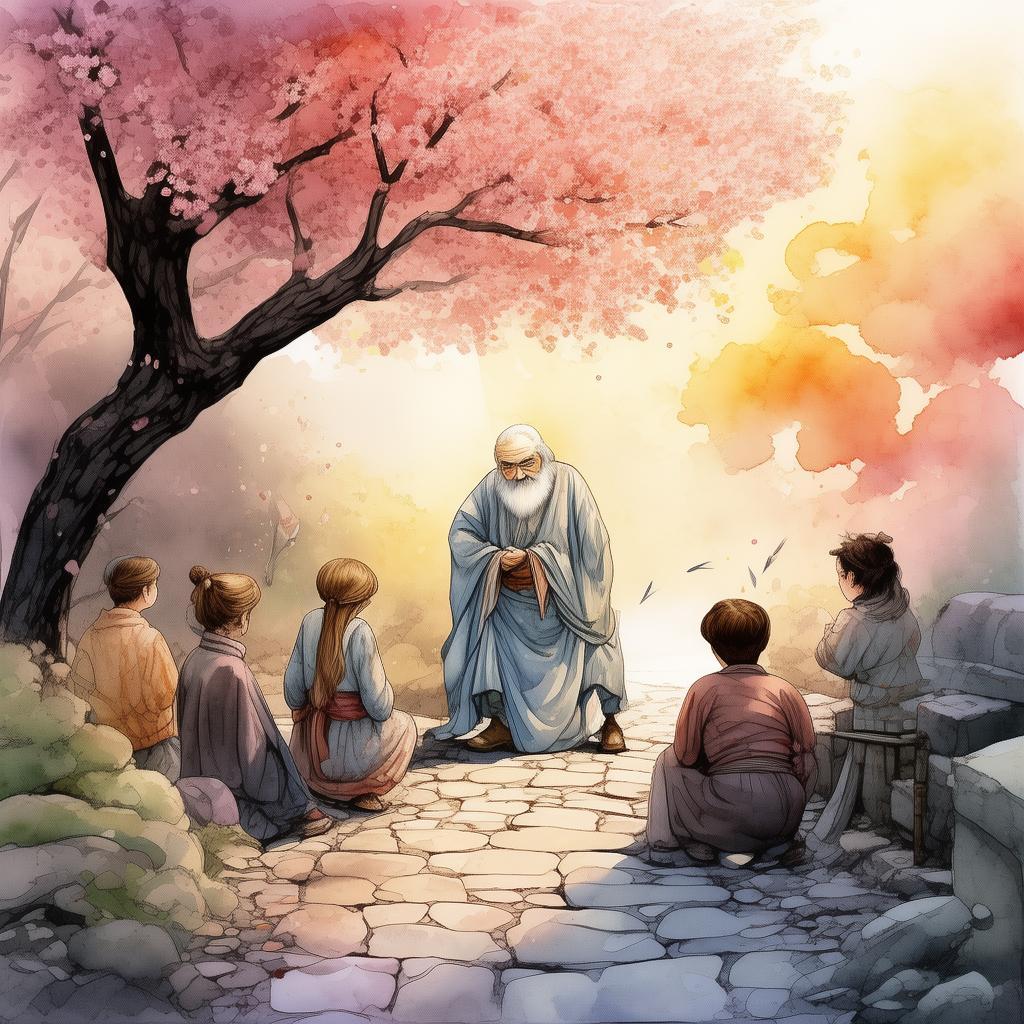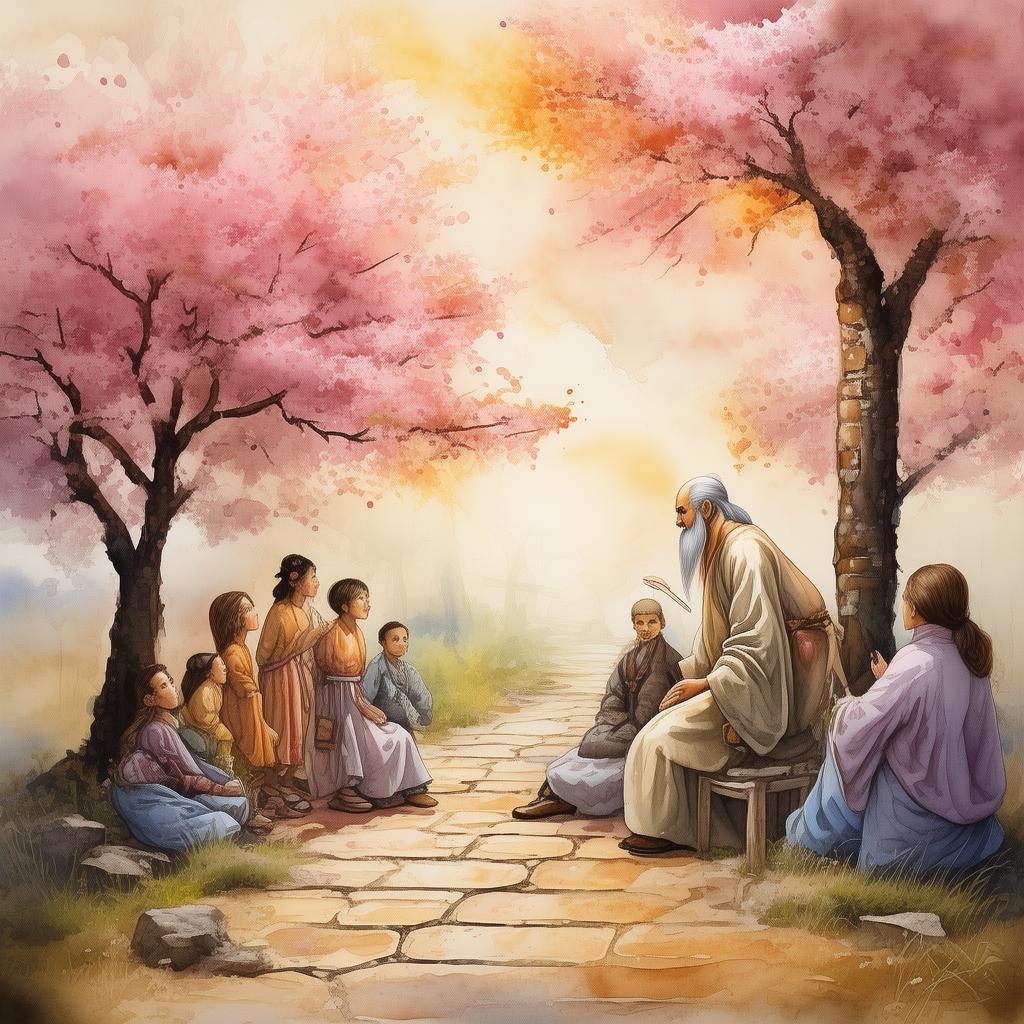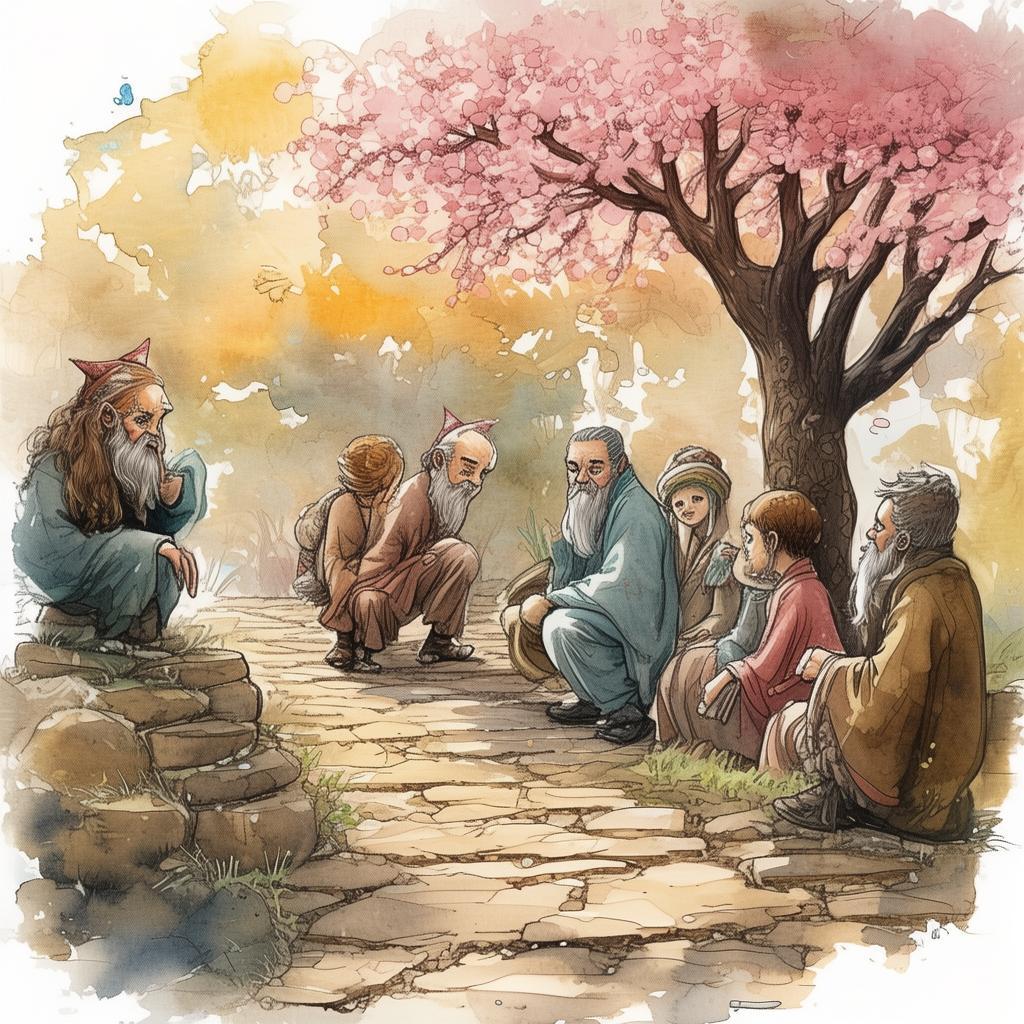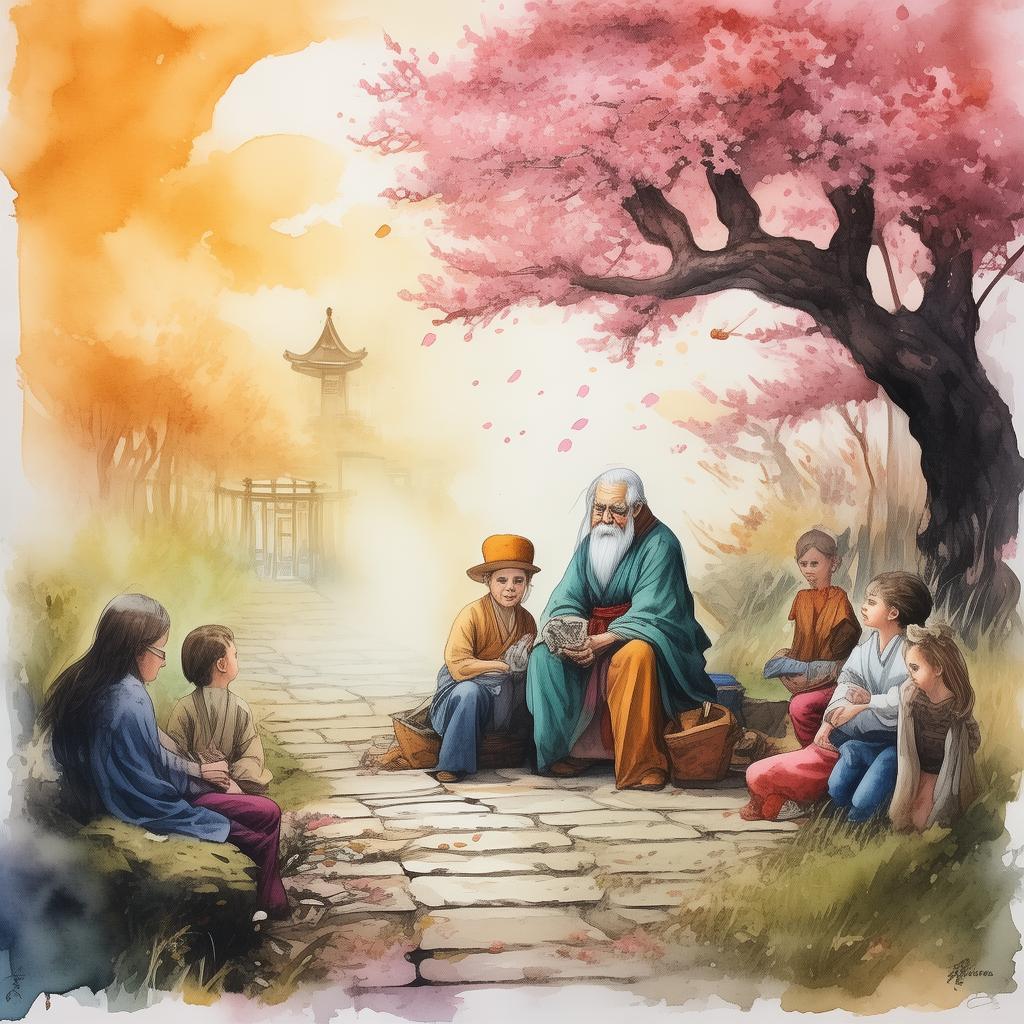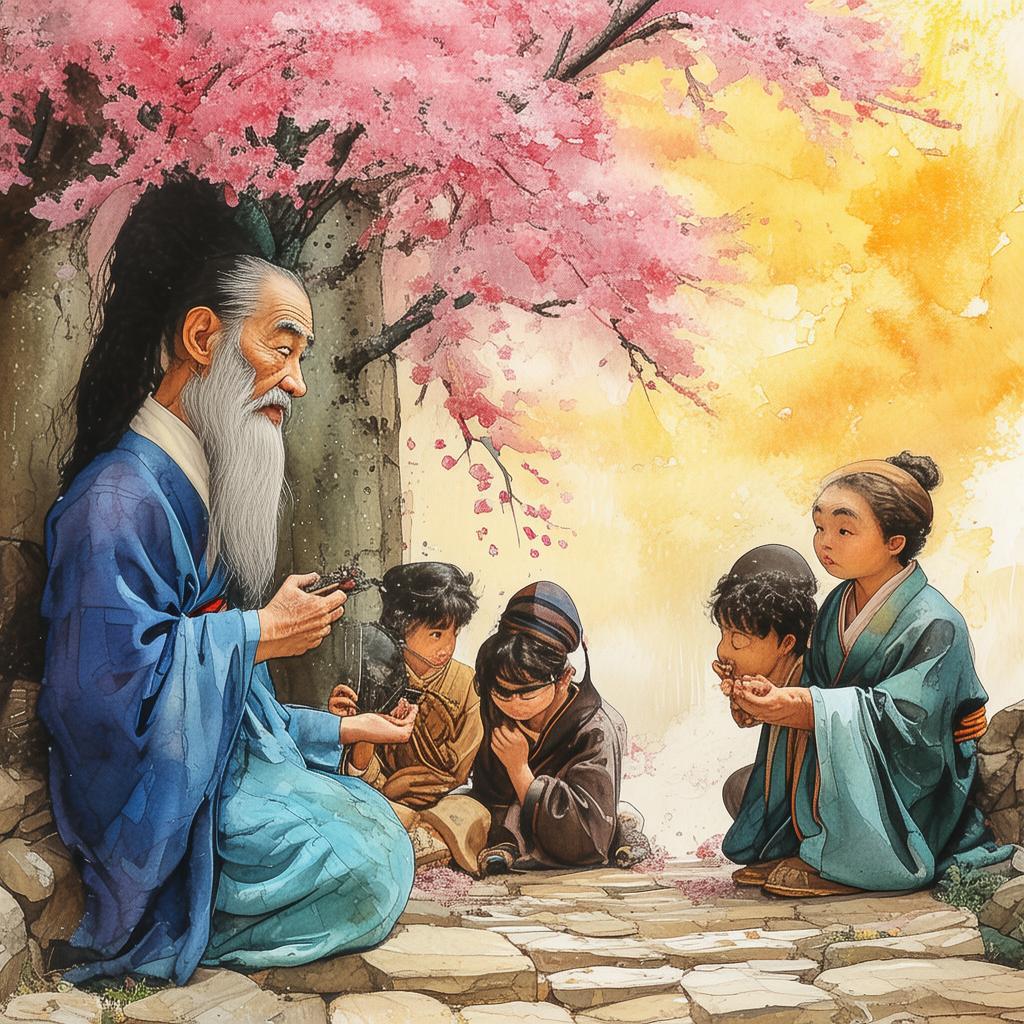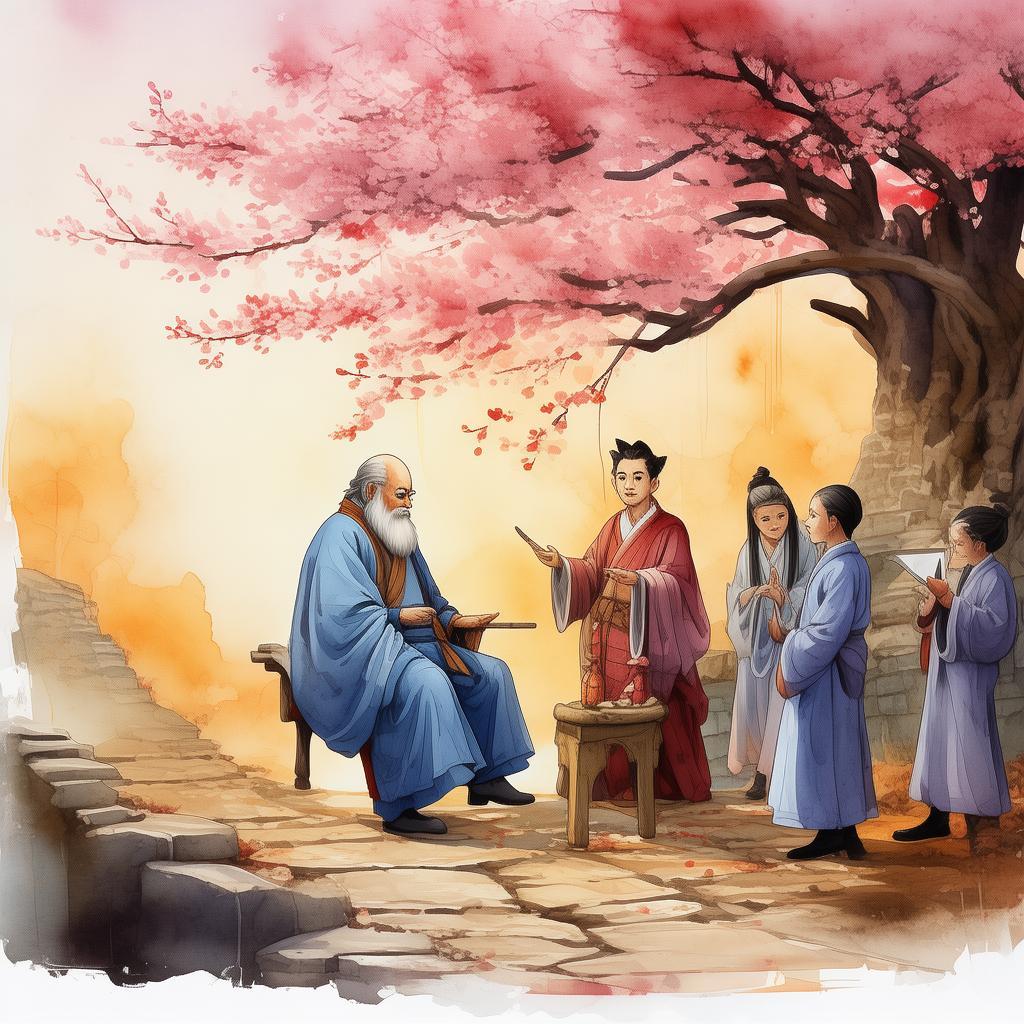The Zen Monk's Enlightenment: The Heart of Wisdom
In the tranquil mountains of ancient China, there lived a Zen monk named Vimala. His life was a tapestry of rigorous discipline and silent contemplation. Vimala sought the ultimate truth, the heart of wisdom that lay beyond the veil of the Maxims of the Mind, the teachings that had been passed down through generations of monks.
One crisp autumn morning, as the sun cast a golden hue over the valley, Vimala awoke from a profound meditation. He had been lost in the depths of his mind, exploring the Maxims of the Mind, each one a beacon of understanding, yet each one a puzzle to unravel. The first Maxim he had encountered was "The Mind is a Mirror," teaching that the mind reflects our innermost thoughts and desires. Vimala realized that to truly understand the Maxims, he must first look within.
As the days passed, Vimala's journey took him to the edge of a cliff, overlooking a vast, churning sea. He sat cross-legged at the precipice, his eyes closed, and began to meditate. The Maxim "The Sea of Suffering" came to him, a reminder that life is often turbulent and fraught with pain. Vimala felt the waves of his own suffering crashing against him, but he held firm, letting the Maxim guide him through the storm.
It was during this meditation that Vimala encountered the Maxim "The Mind is Like a Storm." He saw his mind as a tempest, swirling with thoughts and emotions, each one a storm in its own right. He realized that the key to calming the storm was to observe it without attachment, to let the thoughts come and go without clinging to them.
As he delved deeper into the Maxims, Vimala faced the Maxim "The Mind is Like a Candle," illuminating the path to enlightenment. He understood that the light of wisdom could only be kindled through the darkness of ignorance. He saw the Maxim as a metaphor for his own journey, where the light of understanding would eventually dispel the shadows of confusion.
One evening, as the moon hung low in the sky, Vimala reached the Maxim "The Mind is Like a Mirror." He sat in the moonlight, reflecting on his journey thus far. He realized that his mind, like a mirror, had reflected his innermost thoughts and desires, both good and bad. He had learned to clean the mirror, to remove the dust of ignorance, and to see the world as it truly was.
As he meditated, a sudden realization struck him. The Maxims were not just words on a page; they were tools to understand the nature of his own mind. He saw that the true heart of wisdom was not found in the Maxims themselves, but in the way they transformed his perception of reality.
Vimala opened his eyes to find himself surrounded by a serene, stillness. The Maxim "The Mind is Like Water" had come to him, teaching that the water flows around obstacles without resistance. He understood that his mind could flow with life's challenges, embracing them without struggle.

As the sun began to rise, casting a warm glow over the valley, Vimala knew his journey was complete. He had found the heart of wisdom, not in the Maxims, but in the way they had guided him to a deeper understanding of himself. The Zen Monk's Enlightenment was not just a story of a monk's quest, but a testament to the transformative power of meditation and self-discovery.
Vimala returned to his temple, his heart filled with gratitude and peace. He shared his newfound wisdom with his fellow monks, teaching them that the Maxims of the Mind were not just a set of teachings, but a guide to a life of enlightenment and harmony.
And so, the story of Vimala, the Zen Monk, became a legend, a tale of how one could find the heart of wisdom through the Maxims of the Mind and the power of meditation.
✨ Original Statement ✨
All articles published on this website (including but not limited to text, images, videos, and other content) are original or authorized for reposting and are protected by relevant laws. Without the explicit written permission of this website, no individual or organization may copy, modify, repost, or use the content for commercial purposes.
If you need to quote or cooperate, please contact this site for authorization. We reserve the right to pursue legal responsibility for any unauthorized use.
Hereby declared.




